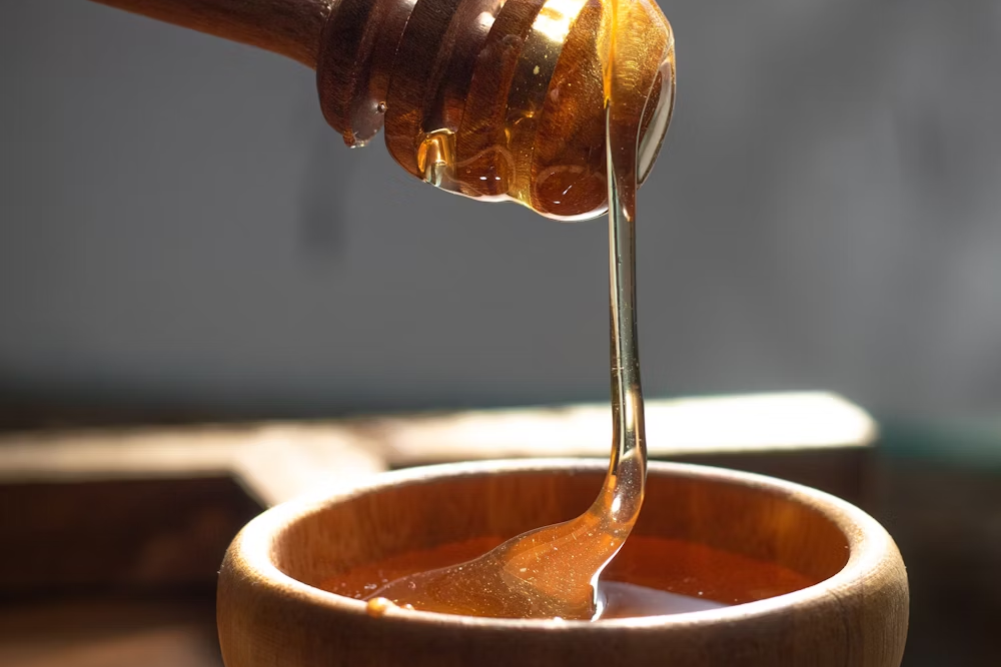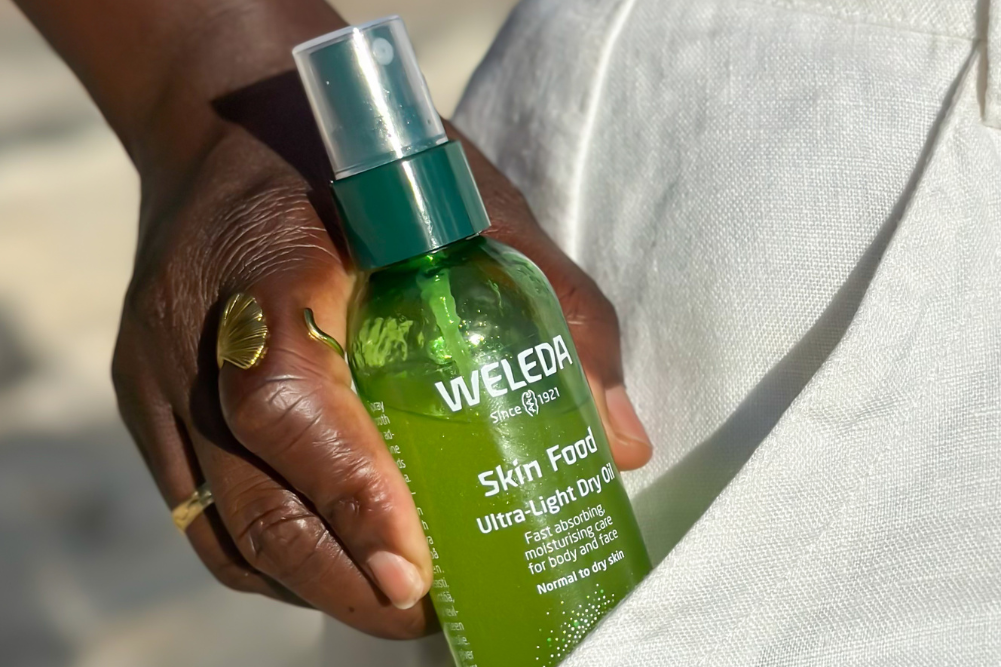DIY natural beauty treatments
Why go natural?
Adding up how much money you have previously spent on prettily packaged skincare products that promised the world can be horrifying. It’s no secret that everyone likes to look and feel their best, but are pre-packaged products really the best solution for our skins?
“Natural skincare products made from fresh ingredients from your fridge and cupboard are free from harsh, drying and irritating chemicals,†says qualified naturopath and homoeopath, Lisa Guy. “Simple, fresh ingredients from your kitchen are also less likely to cause irritations or allergic reactions in people with sensitive skin.â€
Free of toxins, fragrance and artificial colours, naturally made products are low-risk options for those with sensitive skin. Another benefit of taking your skin routine into your own hands is that you can tailor your own natural products to suit your skin’s needs — after all, you are the only one living in your skin 24 hours a day, so it makes sense that you would know its pros and cons better than anyone else.
As a rule, it’s also less expensive to use natural products, as you are not paying for the additional manufacturing, packaging and shipping costs attached to pre-packaged skincare. It’s also so easy and convenient to grab ingredients from your kitchen and make up a batch as you need it. Endeavour to put an end to your own “cosmetic graveyardâ€, filled with half-used tubes, jars and bottles, that’s cluttering your bathroom by making your own products as you require them.
In addition to the positive effect on your bank balance and drawer space, choosing to make your own products is beneficial to the environment and to your four-legged, furry friends as well. Using fresh, organic ingredients means less packaging and the effects of manufacturing pollution are kept to a minimum. Store-bought products are often loaded with detergents, toxic substances and synthetic chemicals, which can be irritating to your skin and the natural environment.
Skin is constantly subjected to damaging free radicals created by factors such as pollution, toxins, radiation and smoke. One of the best ways to ward of the damaging effects of free radicals is to fight them with antioxidants such as vitamin A, C, E and zinc — all of which can be found in fresh foods that can be applied topically as well as ingested. DIY skincare also means that animals are not hurt in the process because there’s no testing on animals. When making your own products, you can have peace of mind in knowing exactly what you are applying to your precious skin.
It’s widely known across the globe that the wonders of Mother Nature can be advantageous for skin. Natural remedies have been used for centuries and continue to be favoured options in modern times. Coconut oil has been used for thousands of years in India to soften skin and hair and is still used to this day due to its moisturising properties and appealing scent. Olive oil was a popular skin softener in ancient Greece, while the ancient Japanese exfoliated with adzuki beans, rice bran and herbs.
You may have noticed that a return to natural ingredients is being heavily featured in today’s beauty and skincare products. For example, mineral makeup is gaining increasing popularity as a natural form of makeup, yet it was used as a cosmetic way back in ancient Rome. Contemporary skincare and cosmetic companies are marketing new products as containing natural ingredients as, quite simply, they work. Tried and tested for decades, natural ingredients are extremely effective in maintaining healthy skin.
“With today’s ever-changing climate change and demands to have the perfect, clear, youthful skin, skincare companies are now looking at age-old remedies and natural ingredients for help,†comments Sally O’Conner, homoeopath and Ayurvedic practitioner. “Natural products have good properties that are pure and often have a greater effect.â€
Which natural products should I use?
There are many natural skincare ingredients that you may discover you already have in your kitchen cupboard or fridge. The rest are easily sourced from your local grocer or supermarket.
Aloe vera The aloe plant has been used for over 3000 years for its soothing, healing properties. The sap of the plant, which retains up to 95 per cent of water in its thick leaves, is also a great moisturiser and promotes cell regeneration. Sally recommends mixing aloe vera sap with grated cucumber into a jelly paste to help cool and calm the skin.
Avocado is nourishing and packed with nutrients and vitamins such as A, B, D and E. Helpful for dry and dull skin, avocado is a great choice for face masks as it penetrates the skin quickly and has a gorgeous creamy consistency.
Coconut oil is the ultimate skin softener, according to Lisa. The small molecular structure of coconut oil means it’s easily absorbed into the skin. It is extremely moisturising and great for after-sun skincare thanks to its healing properties. Coconut oil removes the outer layer of dead skin cells and gives the skin a soft and shiny lustre and divine smell.
Cucumber is a wonderful cooling and soothing astringent. Cucumbers are effective when used for various skin problems, such as puffiness under the eyes, inflammation and sunburn. Cut a fresh cucumber from the fridge into thin slices and place over your eyes for 5–10 minutes for a delightfully cooling and relaxing treat for tired and puffy under-eyes.
Goat’s milk is excellent for moisturising your skin and is very rich in the antioxidant vitamins A and E. It also contains caprylic acid that modifies your skin’s pH levels. Goat’s milk can be helpful in reducing inflammatory skin conditions such as psoriasis, rosacea, acne and eczema. It is also said to encourage the appearance of younger looking skin. For a good cleanser, Sally recommends dipping a cotton wool pad in goat’s milk and wiping over the face to cleanse unseen grime and penetrate down into your pores.
Lemon and lime are rich in vitamin C and flavonoids, both of which are great antioxidants, as well as antibiotics and disinfectants. Due to the citric acid content, lemons and limes are great skin rejuvenators, brighteners and softeners. Lemons and limes are also useful for oily skin, pimples and blackheads. For an all-over skin treatment add ½ cup of lime or lemon juice to bath water and have a good soak for 20 minutes. Sally also recommends rubbing lime on acne-prone skin to help with the spots and inflammation.
It’s important to note that lemon and limes as well as other citrus fruits can cause skin photosensitivity and irritate the skin. Exercise caution when applying undiluted lemon juice to your face and do not expose your body to the sun for a few hours. A way to use lemon juice is to apply it to cotton wool that’s been dipped in water.
Natural yoghurt helps brighten and tone skin and is perfect for scrubs, masks and cleansers.
Oatmeal is soothing for all skin types and is particularly good for sensitive and irritated skin. It also makes for a gentle base in exfoliating scrubs (see Sally’s Strawberry & Oatmeal Scrub recipe).
Olive oil is an excellent cleanser for dry skin, a useful emollient for the body and a nourishing treatment for hair. Olive oil is high in antioxidants, such as vitamin E, which protects against the ageing effects of free radicals. Olive oil can be applied to the hands to soften cuticles and heal dry, brittle nails. Try soaking your nails for 5–10 minutes in a small dish of warmed olive oil and 1 tbsp lemon juice.
Papaya is a wonderful ingredient for natural skincare, says Sally. “Papaya contains papain, which is an enzyme that helps dissolve the dead outer layer of skin. It helps to brighten the skin and balance out uneven skin colouration. It’s also great to eat as it’s rich in important vitamins and antioxidants needed for healthy skin.â€
Raw honey is hydrating, moisturising and soothing and has an abundance of antiseptic and healing qualities. Pure honey also has antioxidant properties and is considered an anti-irritant, which means it’s suitable to use on babies and sensitive skin. It is ideal for face masks, scrubs and creams.
Raw potato has soothing anti-inflammatory qualities that can help to reduce puffiness. “Raw potato on the face can help remove pigmentation,†says Sally. It’s also said to reduce the darkness of a bruise on the skin.
Rosewater is always a good tonic for the skin and very good after cleansing. Rosewater and rosehips have been used throughout history as a beauty treatment as they are high in the antioxidant vitamins vitamin A and C.
Sea salt can improve circulation, stimulate cell growth and exfoliate dead skin, and it offers a number of essential minerals that are absorbed through the skin. Sea salts are ideal for face and body scrubs due to their exfoliating properties. For an easy softening face scrub, combine 1 tbsp of honey with 1 tbsp of sea salt. Rub over your face in a circular motion and rinse off with warm water.
Turmeric root is a plant product that helps with purification and pigmentation. Turmeric can also benefit skin conditions such as eczema, psoriasis and acne and is thought to help fight the signs of ageing and give skin a radiant glow. For an easy face mask for oily skin, mix ¼ tsp of turmeric power with a small dash of coconut oil and mix until you have a smooth paste. Smooth over face and leave on for 20 minutes before washing off with warm water.
How to identify your skin type
When identifying your own skin type, Sally believes there are three important elements to consider — touch, history and the visual.
Dry, lifeless and flaky skin with a pink tinge but cool to touch would indicate a dryer, sensitive skin type. For this skin type it’s recommended to avoid harsh soaps and alcohol based products. Use cream-based cleansers and moisturisers that contain nourishing and rich plant oils such as jojoba, avocado and wheatgerm. It’s also a good idea to drink plenty of water and include plenty of foods rich in essential fatty acids (omega-3) in your diet, such as oily fish, nuts, seeds and flaxseed oil. For a dryer skin type, Sally recommends yoghurt, cucumber, aloe vera and almond oil, which are good for rehydration, calming and rejuvenation.
Mature or wrinkled skin can show signs of a lack of elasticity and vitality. It can also be considered a tired and dull skin type. Skin is a fantastically regenerative organ that does successfully respond to a little TLC. For anti-ageing, Sally recommends a combination of pawpaw and pineapple, which has a remarkably high enzyme factor.
Oily skin is prone to enlarged pores and is often shiny and of a course texture. For this skin type, avoid using harsh and drying soaps. Flower water toners are beneficial, as are light moisturising creams made with plant oils such as apricot kernel oil and almond oil.
Sensitive/troubled skin is usually finely textured and prone to redness. It may also be highly reactive when coming into contact with the wrong ingredients. For this skin type, mild ingredients with soothing properties are the way to go.
Unfortunately, pimples, acne and blackheads are a part of everyday life for many. For acne-prone skin, Sally recommends clove, aloe vera, camphor and yoghurt to cool, calm, heal and balance the skin. By reducing the inflammation and oil production, natural skin pH levels can be restored.
Normal skin is usually smooth and finely textured and suited to light cleansers and moisturisers.
Harmonise inside and out
Although exploring topical natural skin remedies can be beneficial to your skin, it’s also important to nourish your body as well. After all, your skin can be a major indicator of what is going on internally.
“My number one tip for healthy, radiant skin is remember what you put in your body is just as important as what you put on your body,†says Sally. “To keep your skin looking soft, supple and radiant you need to keep it well hydrated and drink 1–1½L of water a day. Include plenty of good fats in your diet (omega-3s found in oily fish, nuts, seeds and flaxseed oil) as well as plenty of antioxidant-rich foods such as berries, tomatoes, red capsicums and carrots. Antioxidants help to keep the skin youthful by reducing free radical damage to cells in the body.â€
It’s also important when embarking on any DIY project to exercise caution. Be sure to identify your skin type and always do a patch test on a small area of skin first, just to be on the safe side. Although natural, homemade products are a lot less likely to cause irritation to the skin, it’s always a good idea to consult a professional if your skin is particularly sensitive or prone to reactions and breakouts.
Enjoy exploring the beautiful bounty nature has to offer. There are so many wonderful ingredients that can be used in homemade skincare and experimenting with them can be a rewarding experience as well as a lot of fun. Why not peruse your fridge and pantry to see what natural Beauty enhancers you can experiment with at home today?
Quick and simple home recipes
Sally’s Revitalising Skin Treatment
- 1 tbsp lemon juice
- 1 tbsp orange juice
- 1 tbsp yoghurt
Mix ingredients into a paste, adding more yogurt if a thicker consistency is needed. Apply to face and leave on for about 20 minutes to revitalise the complexion. Rinse off with lukewarm water and pat dry.
Lisa’s Strawberry & Oatmeal Face Scrub
This scrub is ideal for oily skin, leaving it softer and more radiant. Strawberries have a mild antiseptic and toning action.
The AHA (alpha hydroxy acid) found in most fruits, including strawberries, exfoliates the skin.
- ½ punnet strawberries
- 2 tbsp oatmeal
- 2 tsp natural yoghurt
- 1 tsp raw honey
Mash strawberries to a pulp before mixing in other ingredients to form a soft paste. If the mixture is too liquid, add some more oatmeal and, if too stiff, add a bit more yoghurt. Apply to a damp face in a circular motion and rinse with warm water. Follow with a natural toner and moisturiser.
Fresh Cucumber Toner
Blend one peeled cucumber with ¼ cup rosewater. Strain mixture and apply the liquid to the face for a refreshing and calming toner. This toner can last in the fridge for up to two weeks and is great for dry and sensitive skin.
Fruity Exfoliating Mask
Blend a slice of fresh pineapple with one raw egg and a few drops of lemon juice. Mix into a paste and apply to your face and neck. Leave on for about 20 minutes before rinsing off with warm water. This mask is great for ageing and dull skin types.
Kate McKee is a freelance writer who enjoys writing for a variety of lifestyle publications on topics ranging from gardening and the environment to interior design. Passionate about natural health and lifestyle, Kate loves nothing more than to share her interests and discoveries with thoughtful minds.







